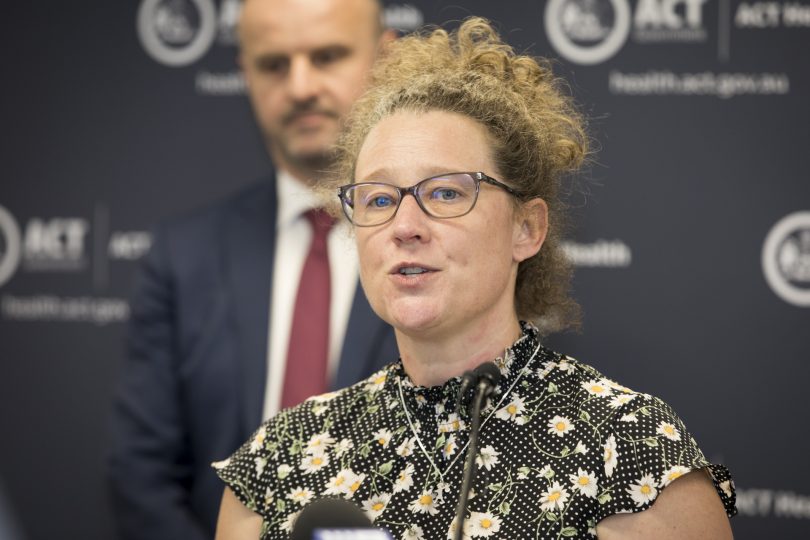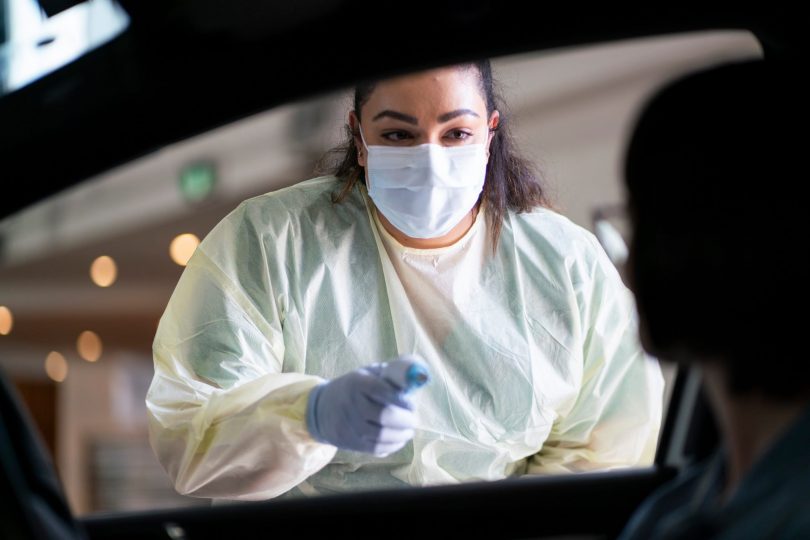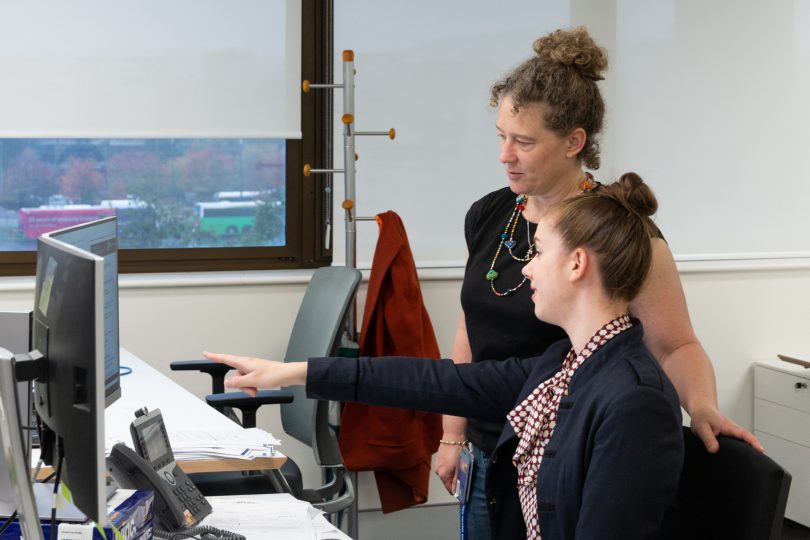
Chief Health Officer Dr Kerryn Coleman said that while facemasks are not yet required in the ACT, Canberrans should be ready for a time when their use is recommended. Photo: Michelle Kroll.
Some businesses and activities will be able to recommence from 10:00 am Monday, 10 August, as the ACT moves to stage 3.1 of eased restrictions. But decisions on larger events and a move from the ‘one person per four square metre’ rule have been postponed for another fortnight.
People will be allowed to dine-in at food courts, casinos and gaming in clubs can reopen, and steam services like saunas will also be able to start up again from 10:00 am Monday.
Strip clubs, brothels and escort agencies will also be allowed to reopen while limits on group bookings at pubs and clubs will be removed, although alcohol will still only be served to seated patrons.
Gyms that operate 24-hours will be allowed to have up to 25 people without staff supervision as well.
The caveat of the eased restrictions remains with businesses having a COVID-safe plan they adhere to. The maximum number of occupants under the current rules must also be clearly displayed at the front of businesses.

Testing in Canberra remains high, which factored in the Chief Health Officer’s decision to ease some restrictions. Photo: Canberra Health Services.
Chief Health Officer Dr Kerryn Coleman said allowing larger crowds and events, including at Canberra Stadium, would be contradictory to the ACT’s advice to avoid large gatherings. However, these decisions will be reviewed on a fortnightly basis.
Dr Coleman said that while facemasks are not yet required in the ACT, Canberrans should be ready for a time when the use of masks will be recommended.
Canberrans are also being warned to monitor the number of people visiting their houses, and keep track of the times people were visiting because of the high rate of transmission identified from home visits in Victoria.
At the moment, there are no limits on the number of visitors in the ACT.
ACT Policing will continue to work with Access Canberra to ensure compliance with the current restrictions over the weekend, although residents have generally behaved well throughout the pandemic, Chief Police Officer Neil Gaughan said.
Only two fines have been issued for COVID-19 infringements to date – one to an individual and one to a business for repeatedly defying directions from police. More than 260 people remain in self-quarantine, around a quarter of whom are in hotels.
However, the biggest problem in the ACT is people putting fake names and numbers down on contact tracing sheets at dine-in establishments, he said.

Contact tracing is made more difficult when people use fake names and numbers at restaurants and bars. Photo: Dominic Giannini.
“I do not think we have too many Donald Ducks in Canberra,” he said.
“I do not think most people understand the importance of it. If Donald Duck and Mickey Mouse continue as it is, and we do have a coronavirus spread in the ACT, it is going to make it very difficult for us to contact trace.”
Illegible details and personal information at the Crossroads Hotel in Sydney – which now has 58 associated cases – has made contact tracing more difficult for health authorities in NSW, and potentially added to the spread of the virus with people not quarantining, Dr Coleman said.
More electronic means are being explored in the ACT to increase accuracy and privacy, Dr Coleman said, but Canberrans are being advised to provide clear and correct information in the meantime.
ACT Policing is also investigating letterbox drops of fake information saying COVID-19 is a hoax. ACT Policing is using forensic testing to look for DNA and fingerprints, as well as CCTV footage to identify the person or people responsible for disseminating the pamphlets.
The ACT remains COVID-free, with the last active case reported almost a month ago and the final infection recovering on 1 August.
For more information on restrictions and the ACT’s COVID-19 situation, visit www.covid19.act.gov.au.
Original Article published by Dominic Giannini on The RiotACT.




